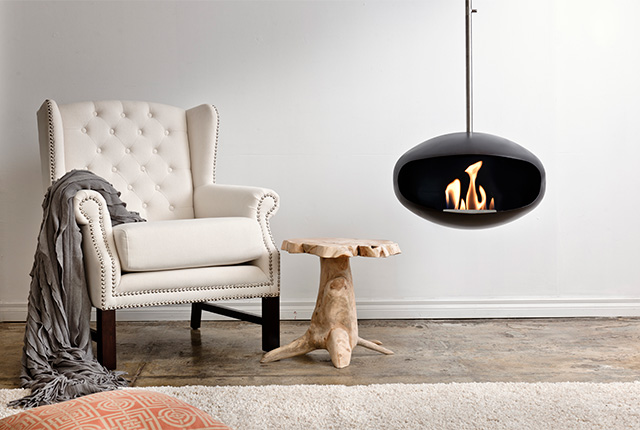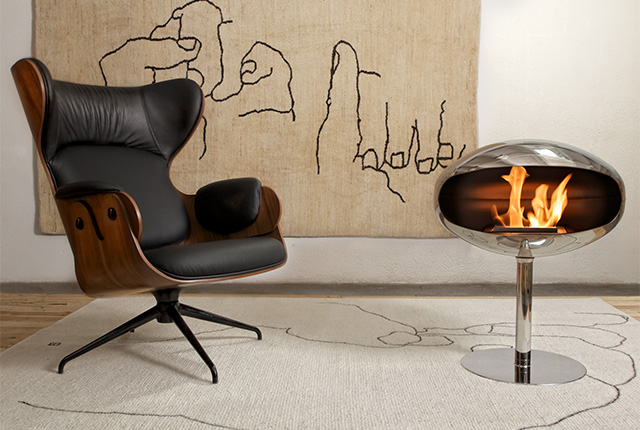When the weather gets weary and temperatures drop, our first instinct is usually to turn on the heater, blast the fireplace or get the heat pump flowing. We like to keep warm, stay dry and feel comfortable in our homes.
That’s human nature. But it’s too easy to overlook an important factor in staying healthy – the air we breathe.
Heating with the perfect amount of humidity

Just like in the story of goldilocks and the three bears, there is an ideal level of moisture in the air, which is suitable for maintaining a healthy home.
“In an ideal world, indoor humidity of 40-60% is desirable for comfort and health.”
If your air is too humid, it can lead to allergic reactions, the proliferation of dust mites and mould growing on the ceiling. Conversely, if the air in your home is too dry (i.e: lacks moisture), there are a range of issues that can arise – such as:
- Respiratory problems (asthma, bronchitis, sinusitis and nosebleeds).
- Dehydration due to air evaporating from your skin.
- Higher likelihood of certain types of bacteria growing (pneumococcus, staphylococcus and streptococcus).
- Less Vitamin A in your body, which makes it harder for your immune system to function effectively.
- Watery and itchy eyes and throat.
- Dry skin, cracked lips and eczema.
- Dry nostrils which can lead to sinusitis and a reduced ability for your nostrils to filter bacteria.
- Joint and muscle pain.
- Sore throats.
A glance at the science

When the air is warmer, it has the capacity to hold higher amounts of moisture. As temperatures drop, the natural level of moisture in the air also decreases.
Because of this, our winter climates tend to be less moist than the summer. As a result, our skin leeches moisture into the dry winter air due to a phenomenon known as osmosis.
Tips for staying healthy with dry indoor air this winter
- Put some moisture back in the air by using a humidifier – the added moisture will help to keep your nose, mouth and skin lubricated and prevent static shocks. Make sure to clean your humidifier regularly to prevent it from blasting nasties around your house!
- Seal any gaps in your home – cracks in window linings, places where insulation is lacking, and attics with large open spaces are prone to letting in cold and dry air.
- Avoid long, hot showers – whilst it can be tempting to stand under steamy hot water for long periods of time in the winter, this actually dries out your skin and removes the oils. Try having shorter showers with warm water if dry skin is an issue that you face.
- Moisturize – rub a thick, oil-based moisturizer onto your skin regularly every day. The best time to do this is after bathing, as it restores the balance of oil and helps your skin to function properly.
- Keep warm with a biofuel fireplace – unlike heat pumps and roaring wood burners, biofuel fires don’t really add or remove moisture. Instead, they provide clean warmth without having much of an effect on the humidity levels in your home.
Stay cosy without drying out your living areas

Biofuel fireplaces are useful for maintaining an ambient environment without drying out your living areas. Compared to heat pumps, which move air around the house and traditional fireplaces which can often act as a moisture vacuum, bio fires offer a great alternative for modern homes.
Some of the other benefits of ethanol biofuel fireplaces include:
- No chimney required.
- Clean burning and doesn’t create any smoke, ash or soot.
- Easy to install and permitted in smoke controlled zones.
- Most don’t require electricity to run.
- hey burn bioethanol, which is much better for the environment than wood.
Naked Flame is New Zealand’s leading importer and distributor of biofuel fireplaces. We have travelled all over the world to source the best bio fires from leading manufacturers and brands. When you shop with us, you can be confident that what you’re getting is a quality solution that’s made to last. Click here to browse our modern ranges.
